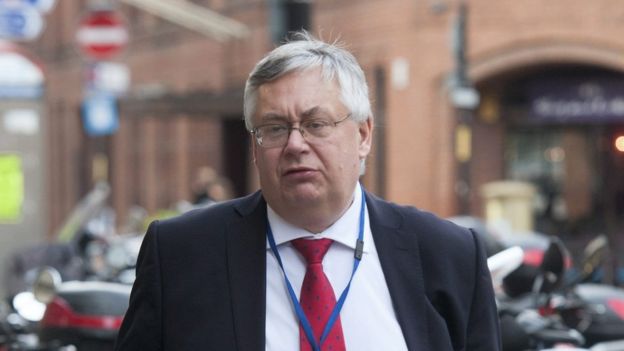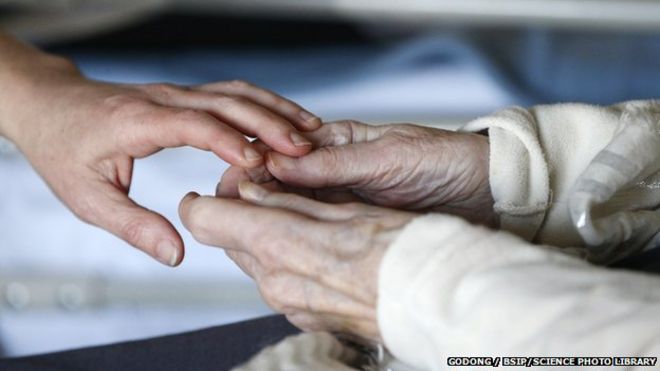Six-year-old Alfie Dingley, from Kenilworth in Warwickshire, suffers up to 30 violent seizures a day.
His parents want to treat him with medical cannabis oil, which is illegal in the UK.
The Home Office said the drug "cannot be practically prescribed, administered or supplied to the public".
A spokesperson added that it can only be used for research.
Alfie's mother, Hannah Deacon, said "you've got to fight for your kids, I want to know that I've done everything I can".
Members of the all-party parliamentary group (APPG) on drug policy reform is calling on the government to assist with Alfie's plight.
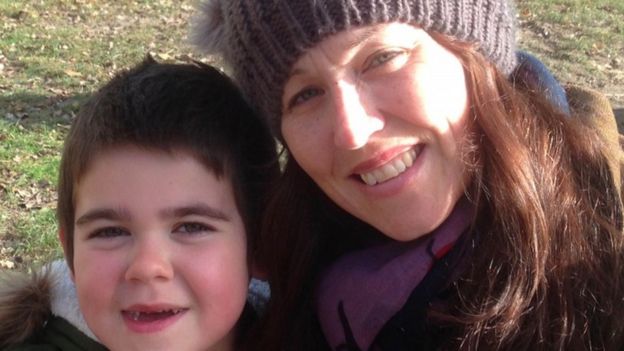 MAGGIE DEACON/PA WIRE
MAGGIE DEACON/PA WIRE
Ms Deacon said Alfie went to the Netherlands to take a cannabis-based medication in September.
She said that while there, the medication, prescribed by a paediatric neurologist, saw his seizures reduce in number, duration and severity.
At one point while in the UK, Alfie had 3,000 seizures and 48 hospital visits in a year, but while abroad he went 24 days without a single attack.
"It's very rare and very aggressive, there's only nine boys in the world with Alfie's condition," Ms Deacon said.
"We never imagined how well it would work. He's just a six-year-old boy, he deserves a happy life. We've found something that makes him happy and now we've got to take that away."
Ms Deacon said his cannabis dose was "very small" and he was taking three drops of the oil, which is made using whole plant cannabis.
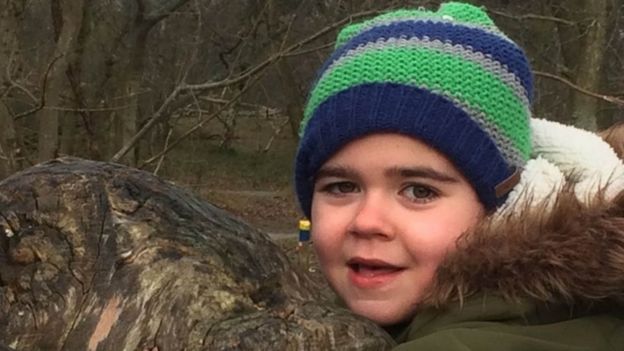 MAGGIE DEACON/PA WIRE
MAGGIE DEACON/PA WIRE
Alfie's mother said the steroids he currently takes in hospital could eventually cause his organs to fail if he keeps taking them at the rate he is.
"He doesn't know any different, he's had a very traumatic life. He's held down and injected," she said.
With the Dutch cannabis medication, it is estimated Alfie would have about 20 seizures a year.
He stayed with his parents in a holiday camp in the Netherlands to receive the treatment, but without medical insurance in the country they had to return home in January.
The APPG wants Home Secretary Amber Rudd to issue a licence for him to continue taking the medication.
Group co-chair, Conservative MP Crispin Blunt said: "It would be heartless and cruel not to allow Alfie to access the medication.
"Parliament really must look at reforming our laws to allow access to cannabis for medical purposes, which has huge public support."
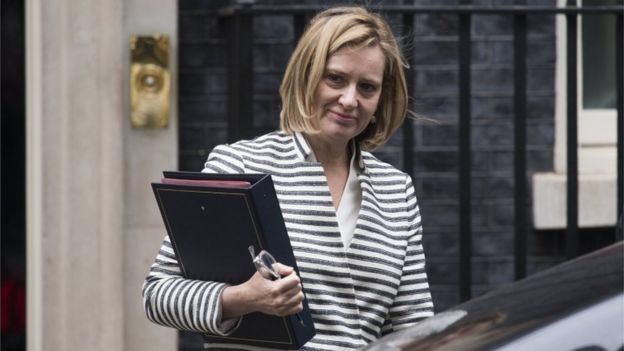 EPA
EPA
The Home Office said it recognised that people with chronic pain and debilitating illnesses are "looking to alleviate their symptoms".
A spokesperson added: "However, it is important that medicines are thoroughly tested to ensure they meet rigorous standards before being placed on the market, so that doctors and patients are assured of their efficacy, quality and safety.
"Cannabis is listed as a Schedule 1 drug, as in its raw form it is not recognised in the UK as having any medicinal benefit and is therefore subject to strict control restrictions.
"This means it cannot be practically prescribed, administered, or supplied to the public in the UK, and can only be used for research under a Home Office licence.
"The Home Office would not issue a licence to enable the personal consumption of a Schedule 1 drug."

